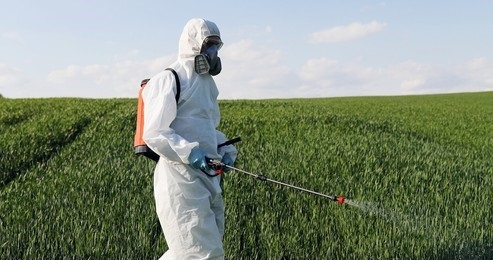Soil organic pollutants mainly come from industrial oil spills, the polycyclic aromatic hydrocarbons from incomplete combustion of fossil fuels or waste, and organic pesticides used in the farming process. Organic pollutants in soil seriously affect crop yield and quality, reduce the quality of groundwater, surface water, and ambient air, and pose a potential threat to human health. Therefore, the rapid qualitative and quantitative analysis of soil organic pollutants is of great importance.

Lifeasible has extensive experience in soil composition detection and analysis. We can apply LIF (laser-induced fluorescence), TOF/MS (time-of-flight mass spectrometry), GC/MC (with AMDIS tool), SFC (supercritical fluid chromatography) for organic contaminant identification and target screening in soil samples, including mineral oil, total petroleum hydrocarbons, volatile organic compounds, semi-volatile organic compounds, PCBs (polychlorinated biphenyls), PAHs (polycyclic aromatic hydrocarbons), phthalates, etc.
LIF technology is based on the characteristic fluorescence spectra emitted by the fluorescent groups of large organic compounds in petroleum hydrocarbons, benzene in polycyclic aromatic hydrocarbons, and organophosphorus in pesticides under the action of laser for quantitative analysis of contaminant identification, Lifeasible can quickly grasp the source and pollution level of organic contaminants in soil samples using this technology, providing technical support and data reference for soil pollution risk assessment and soil remediation.
Compared with traditional organic detection and analysis techniques, such as high-performance liquid chromatography, UV-Vis’s spectrophotometry, and absorbance photometry, LIF technology has the advantages of rapid, sensitive, and simple sample pre-treatment, and has been applied by us in different fields such as field and online monitoring and analysis, and environmental testing.
The complex soil matrix and different kinds of processes make more potential contaminants exist in the soil. Traditional low-resolution organic mass spectrometry methods are difficult to cope with the lack of standard analytical methods in samples or contaminants that have not yet been identified, so Lifeasible has established a screening method for organic contaminants in soil samples using TOF/MS-based analysis with high-quality resolution, high-quality accuracy and high throughput, which provides technical service for screening unknown contaminants in soil samples.
 Figure 1. The general flow of TOF/MS analysis.
Figure 1. The general flow of TOF/MS analysis.
For the detection of organic contaminants in soil, GC-MS is mostly used for volatile and semi-volatile organics, and AMDIS is a mass spectrometry tool that not only solves the chromatographic separation problem but also reduces the dependence on clean-up techniques, thus improving the efficiency and accuracy of reported results. Therefore, Lifeasible has integrated it into GC-MS to optimize qualitative and quantitative analysis.
SFC can be coupled with several other techniques, for example, mass spectrometry, ultraviolet–Vis’s spectroscopy, flame ionization detection, and SFE (supercritical fluid extraction). It has the advantages of high separation efficiency, solvent saving, high efficiency and speed, good selectivity, easy automation, and environmental friendliness. Therefore, Lifeasible applies it to the analysis of soil organic pollutants.
As people become more environmentally conscious, the impact of organic contaminants in soil on human health and the environment is a growing concern, placing greater demands on Lifeasible's testing technology services. Therefore, we have upgraded our existing technical service platform with high precision, high sensitivity, and miniaturization. If you have any questions, please feel free to contact our staff and they will be the first to answer them.
Lifeasible has established a one-stop service platform for plants. In addition to obtaining customized solutions for plant genetic engineering, customers can also conduct follow-up analysis and research on plants through our analysis platform. The analytical services we provide include but are not limited to the following:
July 13, 2024